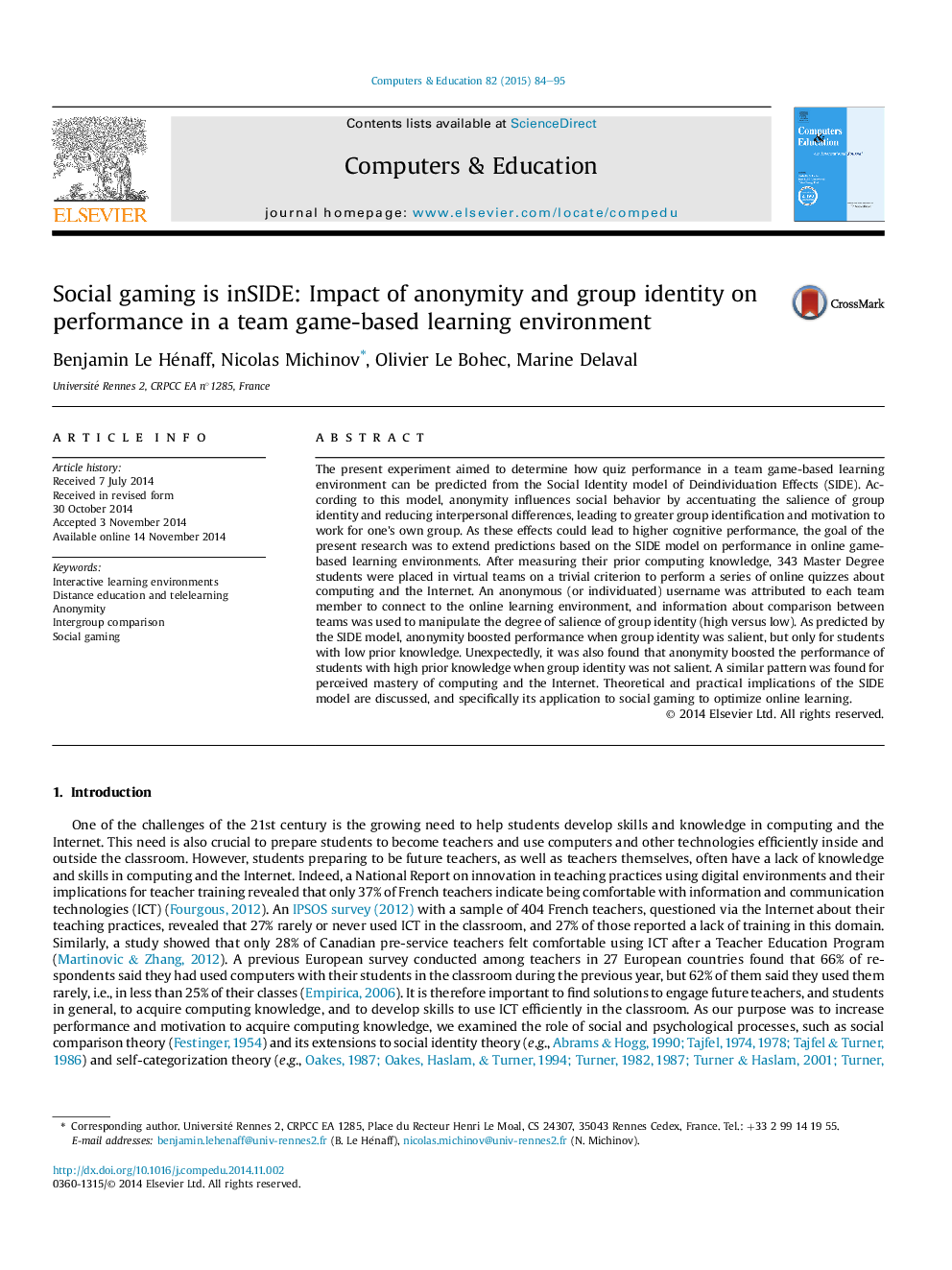| کد مقاله | کد نشریه | سال انتشار | مقاله انگلیسی | نسخه تمام متن |
|---|---|---|---|---|
| 348284 | 618176 | 2015 | 12 صفحه PDF | دانلود رایگان |
• The SIDE model predicts that anonymity influences social behavior by accentuating the salience of group identity.
• Predictions are extended to quiz performance in a team game-based learning environment.
• As predicted, anonymity boosts performance of low prior knowledge students when group identity is salient.
• The same positive effect is observed among high prior knowledge students when group identity is not salient.
• Applying the SIDE model to social gaming is a useful strategy to optimize online learning.
The present experiment aimed to determine how quiz performance in a team game-based learning environment can be predicted from the Social Identity model of Deindividuation Effects (SIDE). According to this model, anonymity influences social behavior by accentuating the salience of group identity and reducing interpersonal differences, leading to greater group identification and motivation to work for one's own group. As these effects could lead to higher cognitive performance, the goal of the present research was to extend predictions based on the SIDE model on performance in online game-based learning environments. After measuring their prior computing knowledge, 343 Master Degree students were placed in virtual teams on a trivial criterion to perform a series of online quizzes about computing and the Internet. An anonymous (or individuated) username was attributed to each team member to connect to the online learning environment, and information about comparison between teams was used to manipulate the degree of salience of group identity (high versus low). As predicted by the SIDE model, anonymity boosted performance when group identity was salient, but only for students with low prior knowledge. Unexpectedly, it was also found that anonymity boosted the performance of students with high prior knowledge when group identity was not salient. A similar pattern was found for perceived mastery of computing and the Internet. Theoretical and practical implications of the SIDE model are discussed, and specifically its application to social gaming to optimize online learning.
Journal: Computers & Education - Volume 82, March 2015, Pages 84–95
